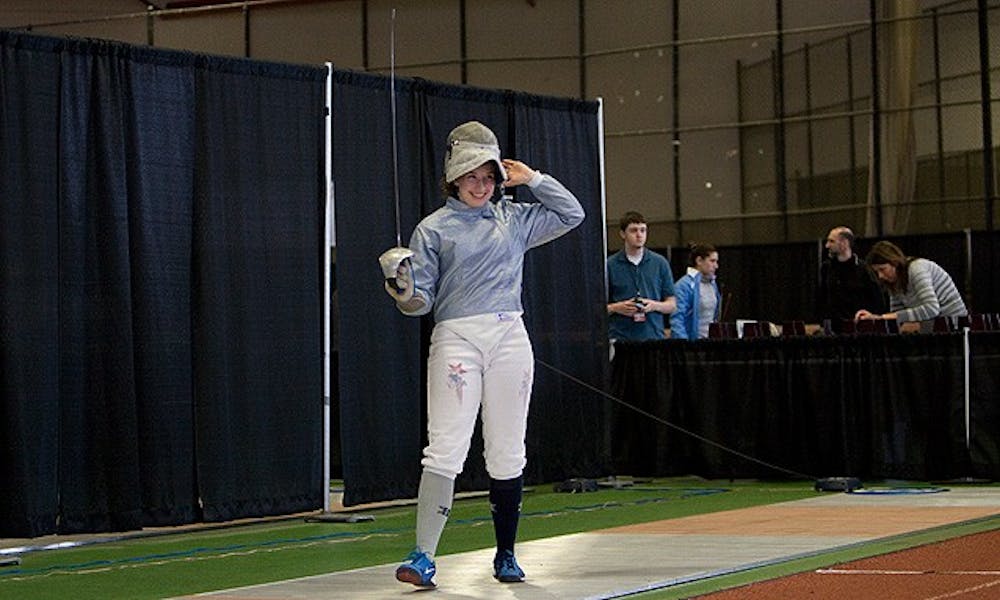Becca Ward has come far since that fateful morning when, as a nine-year-old, she accidentally walked into a fencing class at her local rec center. She was just trying to find the pool, but she signed up for fencing lessons anyway.
Wednesday, the Duke junior reflected on that unlikely beginning, as well as the newest accomplishment in her decorated career—a second national championship that should go well with her two Olympic bronze medals.
And yes, if you were wondering, the second NCAA title was better than the first.
“Everyone seemed a lot more excited after this championship,” Ward said. “I know the school better and the people better, and it was a little more for Duke because I understood the significance.”
Ward’s road to her second national championship did not come easy. In the first day of competition last Saturday, Ward went 10-4, a middling record by the fencer’s lofty standards. She chalked the four losses up to focusing too much on what results her wins might have. In fencing, Ward explained, the sheer quickness of the sport means you always have to stay in the moment.
“You have to be so focused and adaptive,” she said.
Sunday would bring much more success. While Ward entered the day in fifth place, she won nine straight bouts in the morning round robin to move up to second and qualify for the semifinals.
In the semis, Ward faced someone she has known for years—Harvard’s Caroline Vloka, a close friend and competitor during Ward’s entire career. The fencer said she faced Vloka in the finals of the Y12, Y14 and Junior Championships. They also squared off in the 2006 Cadet World Championships. The two grew up together, traveling the world to compete at elite fencing events.
But while Ward and Vloka may be friendly, they’ve had several intense battles, especially over the past three years. In Ward’s freshman year, she topped Vloka 15-4 to win the saber national championship. Last year, Vloka exacted revenge on Ward in the championship match, coming out on top in a close 15-13 match.
The pendulum in the rivalry would swing back Ward’s way Sunday. She beat Vloka 15-11 and moved on to the finals where Princeton’s Eliza Stone awaited.
“I always want [Vloka] to do well,” Ward said, “but there’s still the underlying [factor]: I need to beat you in the end.”
In the finals, Ward started strong against Stone, jumping out to a 7-2 lead. The Blue Devil faltered at the midway point of the match, though, a tendency she has shown throughout her career. The lapse allowed Stone to catch up, and the two fencers were soon tied at 12.
Ward decided then to switch up her strategy. Stone had slowed down her attack, ensuring that Ward was repeatedly forced to make the first move. Ward decided, though, that the Tiger would stop pushing her to attack, and she would capitalize on the mistakes Stone was certain to make.
It paid off. Ward rallied for three straight points, topping Stone for the title and capping another All-American year.
On Tuesday, Ward broke down how she changed her strategy with the clinical precision of a chess player.
“At 12-12 it kicked in,” she said. “I started off strong, then let it slip, and I realized what she had done to change her strategy and I changed to match it.
“It proved effective in the end.”
With the season over, Ward looks forward to foregoing training for the Olympics—she decided some time ago not to compete in 2012, and 2016 is “not on the priority list” (but it’s still a possibility). She plans to continue light training while interning in Washington D.C. this summer as part of DukeEngage.
And if she ever enters a rec center while there, you never know what will happen.
Get The Chronicle straight to your inbox
Signup for our weekly newsletter. Cancel at any time.

